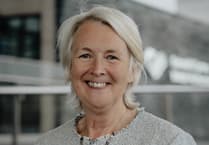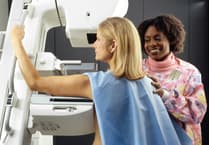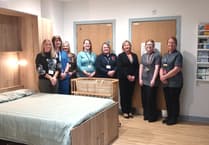There are five incidences of the Indian Covid variant in North Wales, all linked to the same returning traveller.
The news was revealed today in a presentation to Betsi Cadwaladr University Health Board members at their monthly meeting.
Yesterday Public Health Wales said there were 25 confirmed cases of the variant in Wales, most linked to international travel, up from 11 the previous week.
The board’s public health director Teresa Owen also said it was working with the National Arrival Team to locate people who had returned from abroad with coronavirus symptoms.
Of around 3,000 people self-isolating in Wales 583 are in the North.
She said: “We certainly get involved if there are any issues in tracing those arrivals and making sure they are isolating.
“We also work with enforcement and compliance colleagues in North Wales.
“I predict a surge in cases due to this as we go forward, from countries potentially in red and amber.
“Of course countries change (in classification) and we have to be alive to that.”
Ms Owen said surges from people arriving from abroad was “one to watch” and mentioned half-term as a potential cause of another increase in infections.
The board also received the latest number of people being treated for Covid-19 in the region’s hospitals.
Dr Chris Stockport, the board’s director of primary care and community services, said there were currently 44 people being treated for the infection.
However, 25 of those were in the West of the area although there were no new infections.
Planned operations at Ysbyty Gwynedd, Bangor, had to be cancelled for two weeks as up to 49 people were affected by an outbreak of coronavirus which was discovered in February this year.
The annual infection prevention and control report presented to board said learning from the outbreak had identified the “need to strengthen”:
- enhanced controls with regards to the movement of temporary and substantive staff
- education and competence relating to the practice of safe donning and doffing of PPE
- strict adherence to infection prevention policies by both staff and patients
- support to recognise atypical Covid-19 clinical presentations

.jpeg?width=209&height=140&crop=209:145,smart&quality=75)



Comments
This article has no comments yet. Be the first to leave a comment.